中國商人梅愛偲 (Mei Aisi) 2014年跟18歲烏克蘭正妹結婚生子,在網路上造成轟動。後來他更成立了「酷愛俱樂部」 (Culove Club),推廣跨國婚姻,協助其他單身男子結識烏克蘭女生。
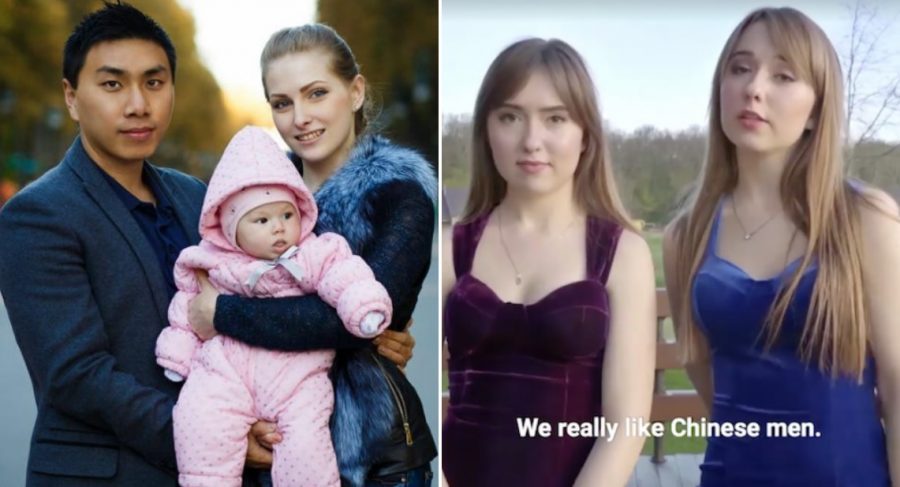
梅愛偲本來在中國是一名「魯蛇」,考不上大學,只能到學費便宜的烏克蘭求學。在那之前,他還以為烏克蘭是在非洲。

結果在烏克蘭留學期間,他靠乒乓球認識了現在的妻子,當時梅愛偲是28歲,而妻子只有16歲。兩人很快就開始交往,現在過著幸福快樂的結婚生活。
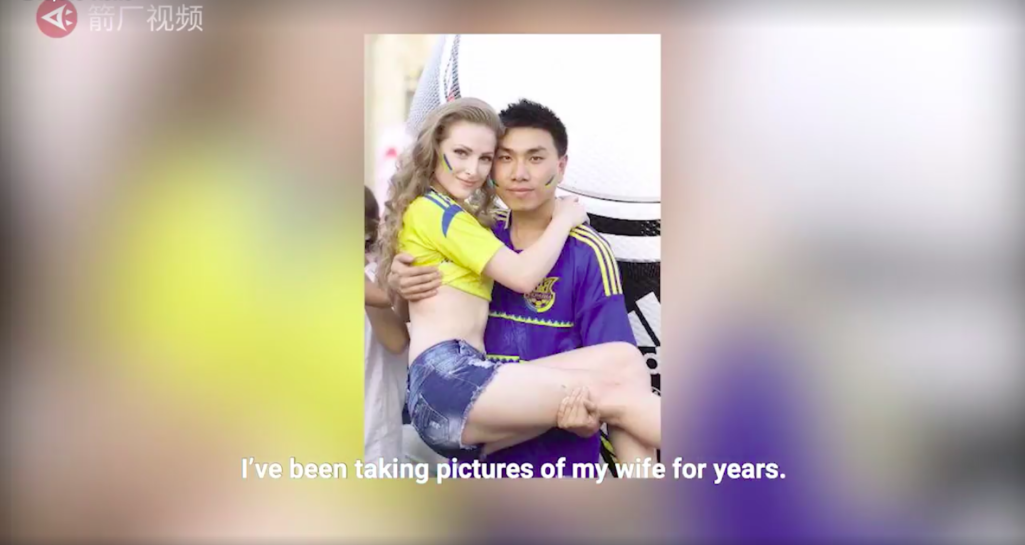
現在,梅愛偲成立了酷愛俱樂部,幫助中國單身漢結識漂亮的烏克蘭美女。
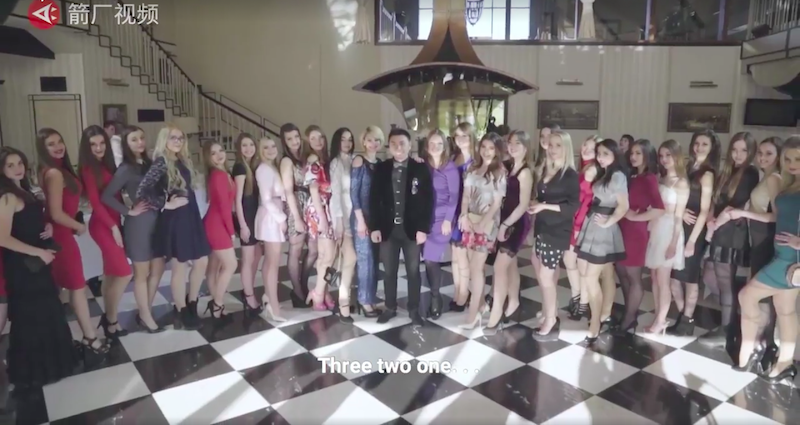
梅愛偲的嫂子也有幫助俱樂部尋找有潛力的烏克蘭正妹,並問她們有沒有興趣認識「優秀的中國男人」。
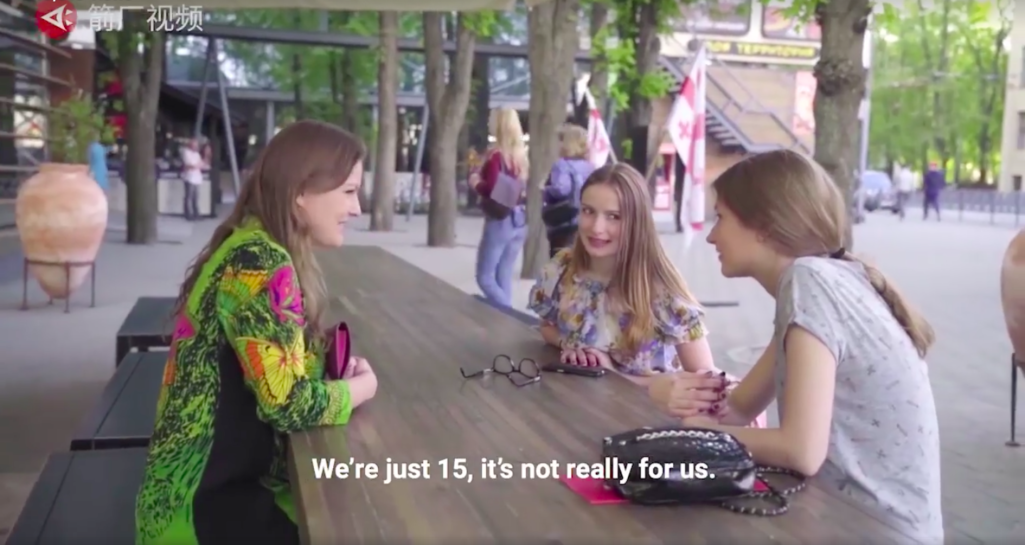
此外,俱樂部還會教烏克蘭正妹中文和中國文化,讓她們能順利地跟對方交流,或在未來嫁到中國後更適應當地生活。
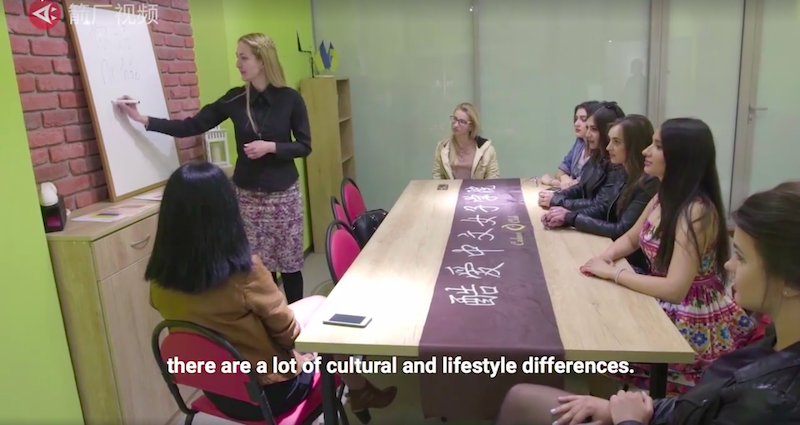
根據《The Diplomat》,有人認為這個俱樂部可能只是一個複雜的賣淫集團,因為有中國新郎願意為未來的新娘家庭支付多達14.7萬美元 (約446萬新台幣)。
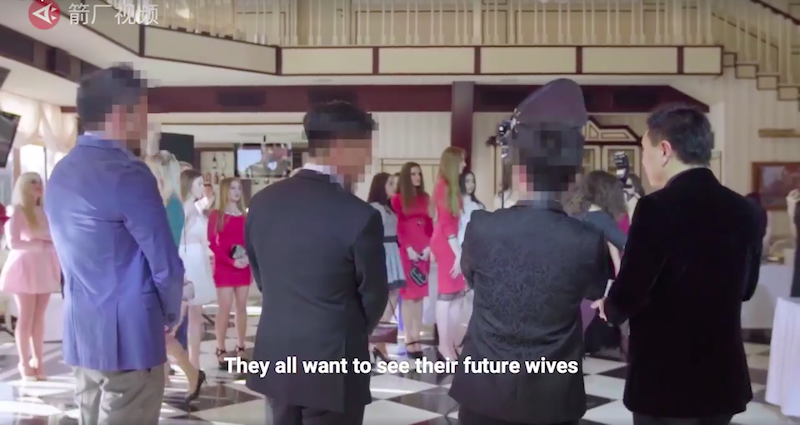
梅愛偲強烈否認這些說法,強調他的俱樂部是關於愛情而不是錢,他還打算把業務拓展到白俄羅斯和俄羅斯等地。
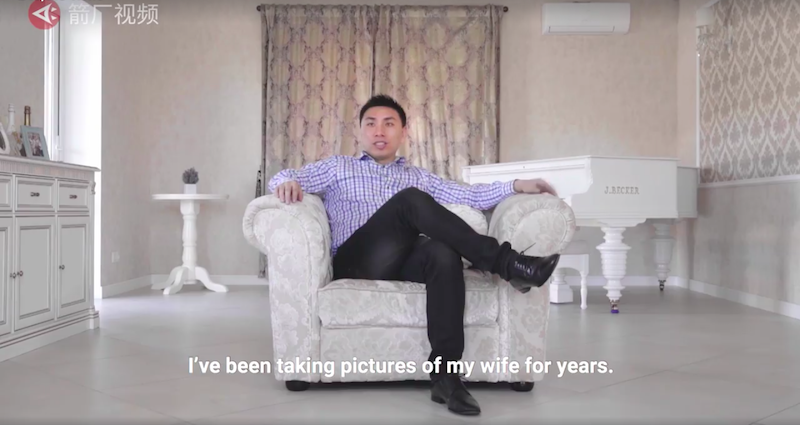
讓我們來看更多相關資訊吧:
“I Married a Beautiful Ukrainian Woman and So Can You”, a short film produced by 箭廠 (Arrrow Factory Video) and translated by us. http://www.chinafile.com/multimedia/video/i-married-beautiful-ukrainian-woman-and-so-can-you Mei Aisi owes his business to his Internet celebrity, and his celebrity to his wife. Before he met her, Mei, a working-class native of the northern Chinese city of Chengde, didn’t have much going for him. He’d scored poorly on China’s college entrance exam and his prospects at home seemed dim. But after he followed a friend on a whim to Ukraine, he eventually managed to secure a place for himself in a fine arts program in Kharkiv, Ukraine’s second-largest city. He found work as an animator and then started his own businesses, running a Chinese restaurant and then an import-export company. A decade later, he met Daria, a willowy blond Ukrainian, then just 16 and 12 years his junior. He began posting about their romance on a Chinese Internet forum for car enthusiasts. By the time the two married, two years later, Mei was being heralded across the Chinese Internet as an avatar of China’s version of revenge of the nerds, diaosi nixi, “the losers strike back.” The expression can apply to all manner of triumph by self-identifying social rejects—striking it rich, excelling in their careers—but Mei’s marriage enjoyed a special stature, born of a distinctively potent, distinctively Chinese brew of historical victimhood, racial insecurity, and sexism. When Chinese women marry non-Chinese men, they can be labeled traitors. When Chinese men marry non-Chinese women, they are heroes. The reasons for this double standard are complex. China’s population is both aging and, in large part because of the one-child policy, men now outnumber women 117 to 100. This worries Chinese leaders who have been beating the drum for traditional marriage and childbearing ever more frantically in recent years. State media even publish stories celebrating the ingenuity of Chinese men who venture abroad to secure a wife. But there is a cultural dimension of Mei’s fame as well: beginning during the years of acute imperial decline in the late 19th century, many Chinese nationalists, enamored of racialist justifications for colonialism in the West, internalized the notion that China owed its diminished stature to deficiencies of masculine vigor. For many Chinese men, the conquest of a Caucasian woman is an antidote to this still-pervasive anxiety and a trophy conferring on her husband not only the ability to continue to his Chinese family line, but also signaling his prowess, his triumph over history. “You bring honor to the Chinese nation by marrying a foreign woman and advancing our genes,” one of the tens of thousands of Internet users who followed Mei’s story enthused. “I hope you have a good life and make more babies.” When Chinese men began writing to Mei to ask how they too could meet and woo Ukrainian women, Mei says he “realized there was really a market for this,” and that is how in 2016 he came to found the “high-end” matchmaking service known as the Culove Dating Club, to introduce Chinese men like him to women like his wife. “High end” doesn’t come cheap. According to its website, Culove charges its Chinese clients more than U.S.$10,000 for a single “dating event” with 30 Ukrainian women, or U.S.$15,000 for “membership,” the benefits of which include eight one-on-one dates. Twenty-four-year-old filmmaker Zong Ming heard about the club and suspected Mei was running what amounted to an upscale prostitution ring in a country that, particularly in recent years, has been plagued with human trafficking. In May, she traveled to Ukraine for five days to investigate for Arrow Factory Video, which is part of the business and tech site Jiemian News. She found a somewhat more complex picture. While none of Mei’s male Chinese clients allowed themselves to be shown on camera, Mei himself is unabashed about his enterprise. He sees himself as helping timid Chinese men rise above marriages negotiated in purely material terms and giving them the tools to pursue romantic love. And the women he recruits with his Ukrainian sister-in-law told Zong in interviews they were interested in Culove’s clients not only for their money, but because they found their personal qualities more appealing than Ukrainian men’s. Mei has plans to expand to Belarus and Russia, and associates the business with “One Belt, One Road,” the Chinese government campaign to expand national infrastructure for trade. Clearly, though, rail lines and deepwater ports are not the kind of infrastructure that interests Mei the most, and there is much to find disquieting in Zong’s footage of him scouring the streets of Kharkiv for “dates” for his clients. As the film closes, Zong films Mei’s young daughter toddling across the manicured lawn of a walled garden; one can’t help but wonder what she will someday make of everything her father is so proud to have achieved. —Susan Jakes and Muyi Xiao
Posted by ChinaFile on 2017年9月19日
參考資料:Nextshark

(往下還有更多精彩文章!)